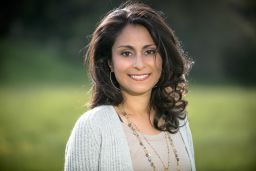Editor’s Note: Dr. Celine Gounder is an internist, infectious diseases specialist, and epidemiologist. She’s the host of the podcast “Epidemic” with former US Ebola czar Ronald Klain, an adviser to Democratic presidential candidate Joe Biden. The opinions expressed in this commentary are her own. View more opinion at CNN.
At a time when politicians are dominating the national and state briefings on Covid-19, I would like to propose an alternative: Healthcare workers and scientists should be at the forefront of educating the public about the pandemic.

We need to hear more from doctors and nurses, who can tell us what they and their patients need to survive. We need to hear more from public servants at the Centers for Disease Control and Prevention, the National Institutes of Health, and the Food and Drug Administration, who have a lifetime of wisdom and expertise. We need to hear from officials in local and state health departments.
When politicians, political appointees, and political pundits speak, we first ask ourselves, “What’s their agenda?” Whether we believe their message depends on our political identity and theirs. We’re poised to reject information coming from messengers we don’t like, even if what they’re saying is true.
I spent two months as a medical volunteer in Guinea during the West African Ebola epidemic. Ebola then had much in common with Covid-19 today. It was a deadly disease for which we had no effective treatment or vaccine. Control of the disease depended on basic public health measures like hand hygiene, contact tracing, isolation and testing.
The local politics in the region mirrored our own in many ways as well: a lack of trust in government and in the election process. Politics and government were seen as routes to self-advancement, not public service. Ebola broke out in Guinea only a year before the country’s second democratic presidential elections and in the midst of much controversy surrounding local elections.
Early messages about the Ebola epidemic could easily be confused with propaganda. Politicians drove around in 4x4s wearing the yellow scarves and logos of the ruling party and delivered a combination of Ebola health information and political campaign rhetoric – which, to me, feels all too reminiscent of today’s White House press briefings. Angered that the party in power seemed to be using Ebola health education for political ends, the opposition party spread rumors about the origins of Ebola, sowing confusion and distrust.
Government officials were accused of manufacturing Ebola to maintain their hold on power. Guineans flaunted presidential declarations of a public health emergency and instructions on how to prevent disease transmission. They were cynical about the true motives behind the Ebola response.
It’s hard to convince someone to change their values or political identity. It’s a lot easier to appeal to values they already hold. They’re more likely to be convinced by a messenger they already trust. In West Africa, we worked with imams to deliver the message. Dr. Mamadou Lamine Diallo, an imam and physician, explained to me that there’s a lot in religious texts that relates to the control of infectious diseases. He told me, “It is me, Allah, who sends the disease and the treatment. … He who leads to the loss of one life is he who kills all humanity. He who saves one life saves all humanity.” By drawing on those religious texts, imams reframed the conversation about Ebola in a way that transcended time and present-day politics.
In the United States, we’re as politically polarized as we’ve ever been. But there is one value all Americans share regardless of their politics, and that value is freedom. We can’t be free when half our country is sick. We can’t be free when we fear leaving our homes. We can’t be free when we’re losing our livelihoods. We can’t be free when we can’t safely go to the polls to vote.
Freedom is what made American science the greatest in the world. And science is what made the United States the most powerful nation on earth. A number of our Founding Fathers, like Benjamin Franklin and Thomas Jefferson, were scientists or trained in the sciences. In the twentieth century, scientists from all over the world fled oppressive political regimes to come here.
Just as religion helped cut through politics in West Africa, our shared value of freedom paired with science will help us cut through political polarization in the US today. But science is a process, not a religion or ideology. As scientists, we must be humble. We must constantly reevaluate our assumptions and conclusions. We need to keep asking questions. What sets good scientists apart is that they don’t double down on long-held beliefs. They acknowledge when they may have been wrong. We need more of that in our public discourse.
Science reporters should be taking the lead at press briefings, and doctors and scientists should be answering their questions. Political journalists should be explaining the processes that lead to political decisions, but they should leave explanations of the science and health policy to doctors and scientists. In science we can be united as one nation.

